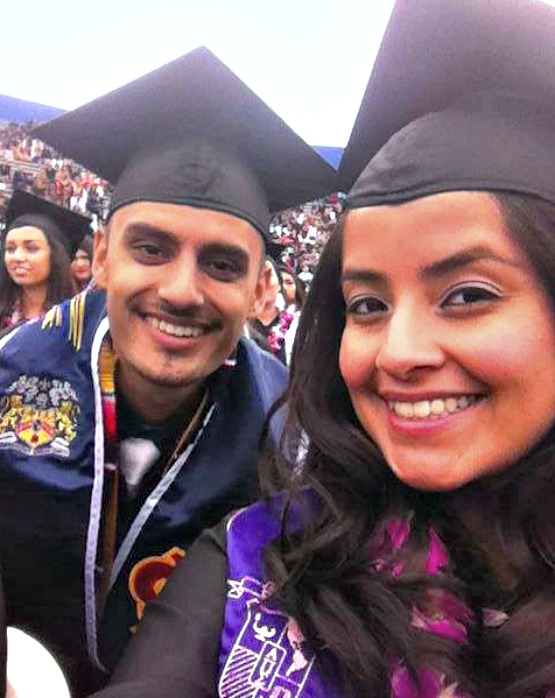I graduated from a public high school in East Los Angeles almost nine years ago. Although my family had economic challenges at home, I was the youngest of my siblings and the only one to have had the opportunity to apply and enroll into a four year university. I had a great GPA, AP classes, and extracurricular activities to show on my applications. My high school’s student enrollment was well over 2,500, and yet I was able to stay on a good academic plan. I was proud and privileged to be admitted to UC Santa Barbara in the fall of 2009. After hard work and determination I graduated in June 2013 with a bachelor’s degree in Chicana & Chicano Studies.
My first year at UCSB was definitely full of learning experiences, highs and a lot of lows. It was exciting, I felt nervous, and I was homesick often, which is normal for an 18 year old leaving home for the first time. My four years at UCSB were the best years in regards to my personal growth. But before I get into more details about my amazing learning experiences, I want to touch on what my high school could have done to better prepare me for college.
As a first generation Mexican American and first generation college student who grew up in East LA, I needed more than just good grades and extracurricular activities to be successful at UCSB. What I needed was guidance on how to navigate through a world different than the one that I was used to. I wish that I would have learned how to exist in a fast paced environment filled with other students who grew up with more resources than I did and who had attended schools with more resources than my high school had to offer. I needed someone to tell me that there would be days that I wouldn’t be able to afford a hot meal or just barely be able to afford the $200 textbook that was required to pass Geography 1.
I wish my high school could have hosted financial literacy workshops for families and students alike. My high school teachers could have hosted family nights where they explained scholarship opportunities and showed parents how to help their student apply for FAFSA. During my time working at KIPP (Knowledge Is Power Program), I have learned that including families through this process is extremely helpful especially for first generation college students. The responsibility of preparing students to get to and through college should be shared between the school and families, and providing the knowledge and resources for parents plays a huge role in the success of our students in college.
I also wish someone would have told me that no matter what anyone said and no matter how someone may make me feel, I had every right to be there and that I was deserving of every amazing experience college had in store for me.
I don’t blame my high school for every hurdle I had to go through emotionally or financially, but I do believe that my high school could have prepared me for the culture shock and adaptation that I had to go through as a woman of color before being able to fully focus on my postsecondary education. If only there were more teachers of color who grew up in my same community or whose home life was similar to mine that would have been helpful to me. Maybe my high school should have made a bigger effort to hire teachers who had a similar background to my own and who had first hand college experiences that they could share with their students.
My public high school is located in an underserved community where more than 70% of families qualify for free or reduced lunch, and 99% of students are students of color. There should have been more conversations around financial challenges, racial disparities, and the potential feeling of not belonging in a higher education setting. These are all things I wish I would have known before arriving at UC Santa Barbara.

